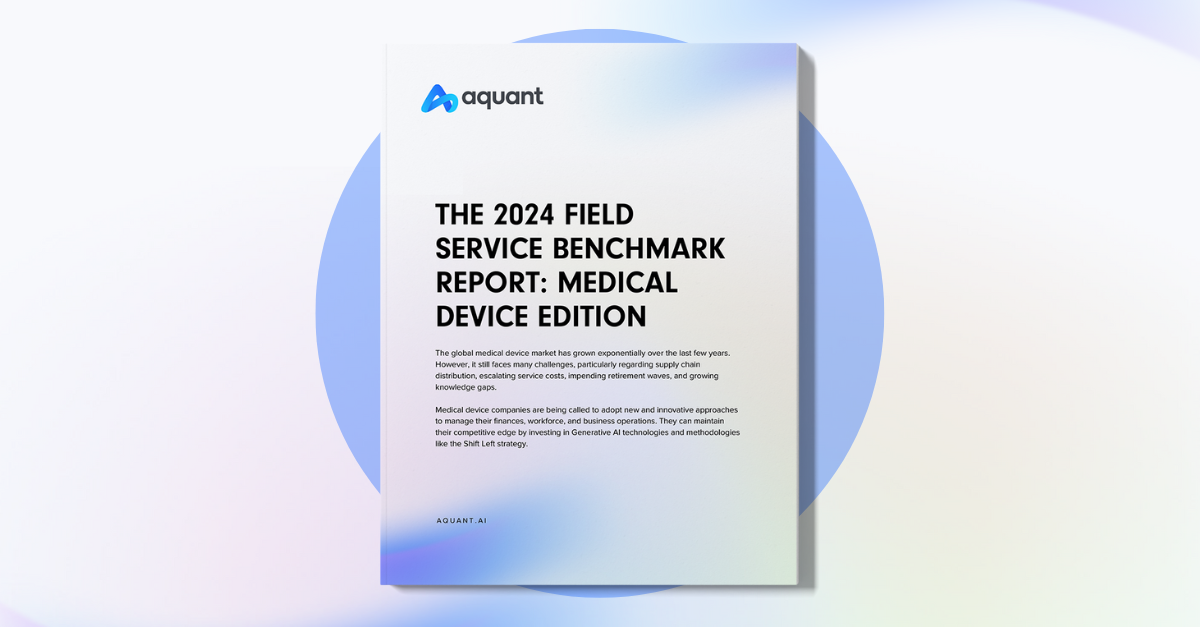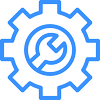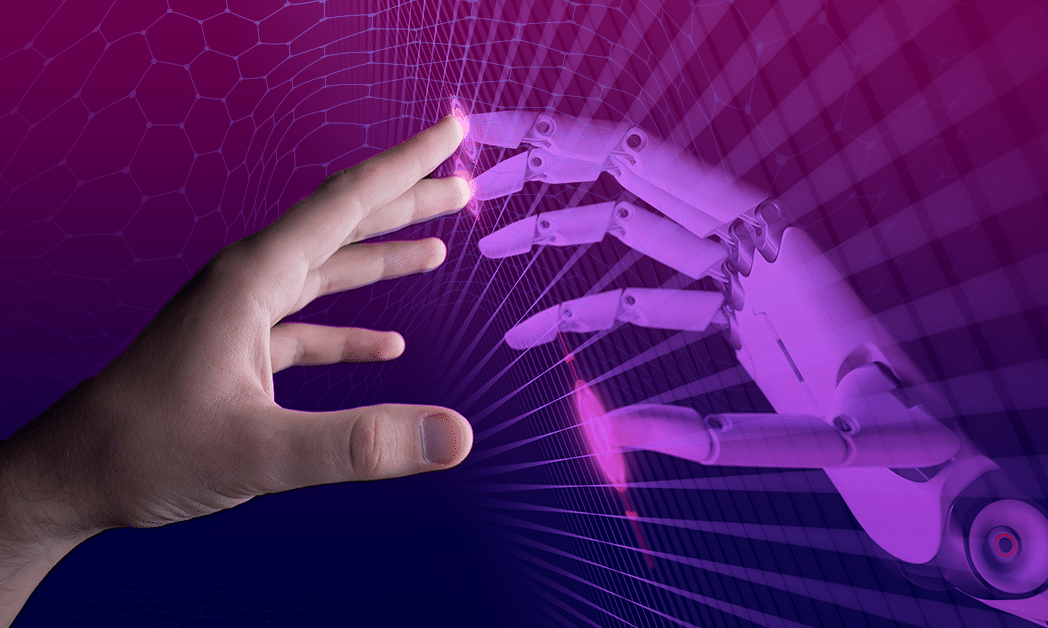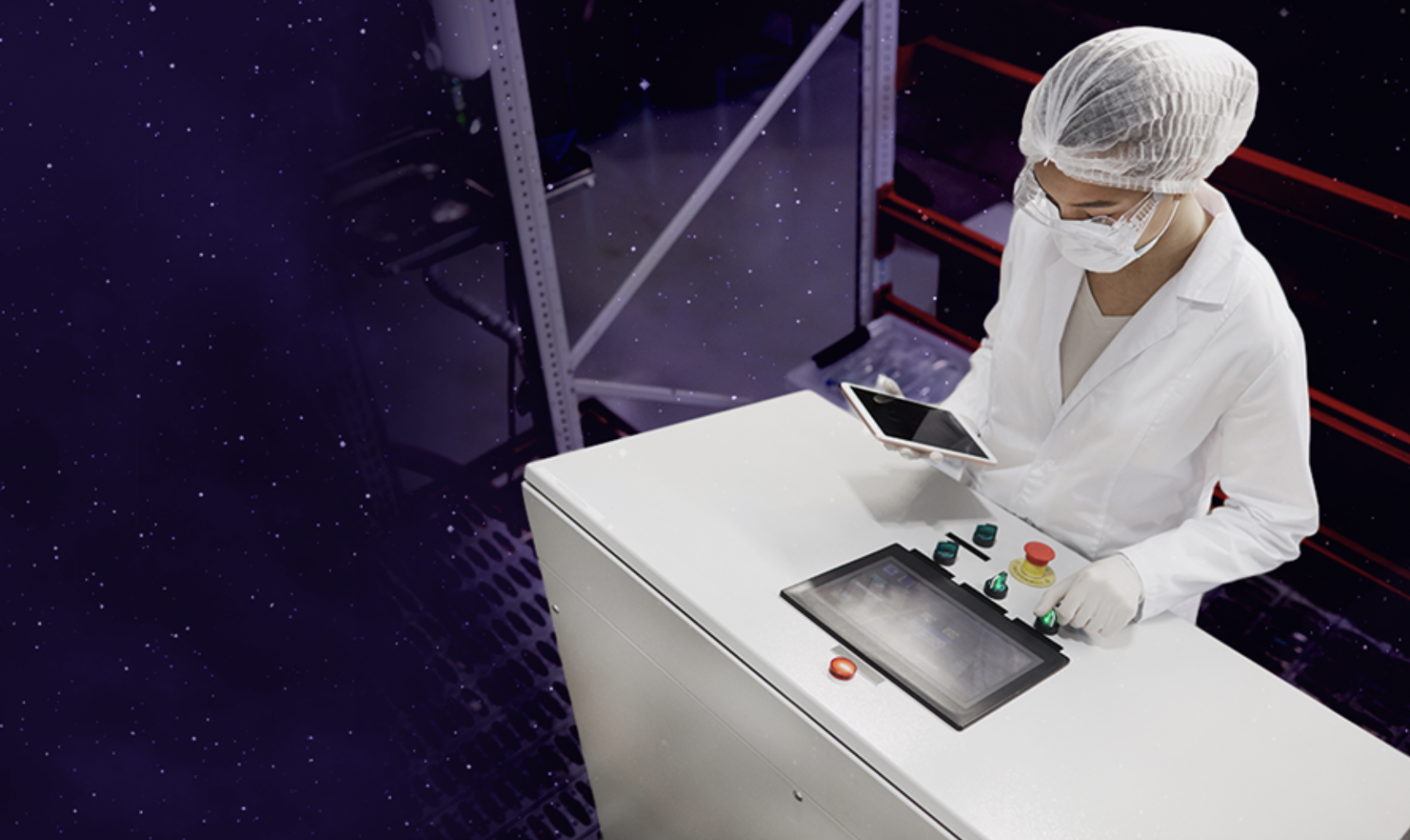Artificial intelligence is a hot topic in the service space. Automated assistance, through AI applications like chatbots and interactive voice technology, is on the rise. The growing sophistication of AI technologies is helping service professionals across many industries deliver better customer experiences, with greater efficiency and at less cost.
As AI projects gain traction, many service professionals worry that companies will replace them with machines to cut costs. Grim statistics fuel the fear. According to Fortune, 48% of human workers will eventually be replaced by robotics and software automation. Yet some service pros express skepticism that machines can make their skill sets redundant. Can a robot really replicate their hard-won knowledge?
Will AI & Robots Take My Job?
Even the Smartest Machines Won’t Win Every Time
In reality, even the most sophisticated AI can’t replace the nuances of human experience. Take the example of AlphaGo, a computer program developed by Google DeepMind that learned to play the complex board game through thousands of hours playing against itself. AlphaGo has been lauded by many as one of the most advanced real-life uses of AI ever developed.
AlphaGo vs Lee Sedol | Man vs Machine
In 2016, AlphaGo stunned Go enthusiasts across the world by defeating Lee Sedol, an 18-time world champion, in a series of games, 4-1. Again and again, the machine made unusual moves that demonstrated skills and creativity beyond those of the human engineers who programmed it. Even so, Sedol’s single victory came in the fourth game, when he made a move that had a one-in-ten-thousand chance of happening.
Sedol’s win proved that even the most intelligent machines can sometimes fail to account for human ingenuity and intuition. In future games, AlphaGo adapted its approaches based on lessons learned from Sedol’s defining move. And for his part, Sedol credits AlphaGo for changing his approach to the game, inspiring a streak of tournament wins.
What Can Be Learned From This?
Service leaders should be mindful of this lesson when implementing AI-powered software. Ideally, these applications offer new dimensions of insights to employees to push their performance to the next level. But machines won’t perform at their full capacity without the influence of human wisdom. To derive insights that impact performance, applications need the element of tribal knowledge. Let’s look at a few differentiators that take AI to the next level through leveraging experts.
How Does AI Learn?
Human Insights Are Hidden in Free Text
Many AI solutions can apply machine learning to structured data—the information found in databases, parts catalogs, and other systems that contain predefined fields that are easy to search. This provides tremendous value to organizations that struggle with siloed data. Answers to service issues might live across CRMs, knowledge bases, machine logs, ERPs, and many other systems. Machine learning can mine and combine all of this disparate data, making it easy for service professionals to access organizational insights.
But some solutions fall short in their ability to assess free text. Free text is by definition unstructured data. For many teams, this includes technician notes, comments on support cases, emails, and other valuable documents that contain glimmers of insight from skilled technicians, support reps, and customers.
An intelligent solution will bring together important information stored in databases with the shades of human experience hidden in free text. By democratizing access to all this data, organizations give their entire team exposure to a new dimension of insights, empowering them to deliver better customer service.
What Language is Best for Machine Learning?
Machines Need to “Speak Human”
Different people describe the same problems in different ways.
While one HVAC customer might say “the unit is leaking,” another might say the “the AC is dripping.” Less sophisticated machine learning applications will not be able to interpret these two complaints as the same scenario. As a result, the HVAC company builds a knowledge base with two articles for the same solution, customer service reps are inconsistent with their responses to customer queries, and technicians lack the critical insight to fix problems on the first try.
Natural Language Processing is a type of Artificial Intelligence that brings computers closer to a human understanding of language. Software programs that incorporate NLP consider variables like regional slang, social context, and typos in their interpretation of data. This is an especially critical component of the analysis of free text.
With a service solution that incorporates NLP, “the unit is leaking” and “the AC is dripping” can be automatically mapped to the same scenario and solutions based on context hidden in historical data. This arms customer-facing agents with more informed responses to customer issues, based on the experience of other team members.
Artificial Intelligence vs Human Intelligence
They Shouldn’t Be Competing; AI Findings Need Expert Wisdom
Even the analysis of free text and structured data might not provide the whole picture. Many organizations’ experts and skilled technicians have knowledge that isn’t documented anywhere. Companies must give their skilled employees the opportunity to validate and influence AI-driven decisions and predictions.
Historically, building accurate knowledge bases involved taking experts out of the field for months at a time to incorporate their wisdom. But with AI-driven solutions that automatically provide solutions to customer challenges, it should be easy for experts to assess answers and apply their wisdom.
This application becomes increasingly critical in today’s environment, as 70% of service organizations indicate that retiring workforce will be a burden in the next five to ten years. That job knowledge, gained through years of experience, needs to be shared across the organization so it isn’t lost to time, so that the upcoming generation of service professionals can succeed.
While some fret about the implications of the AI revolution for service workers, the truth is that there’s no substitute for real-life exposure in the field. Organizations should look to AI-driven software to coach their workforce, not replace them. AI is most effective for optimizing customer service when it leverages and informs employee experience.
Recent Posts
-

AI and Shift Left Will Propel Success in Medical Device Service, Says New Aquant Report
Read More »March 05, 2024 Janice Camacho








